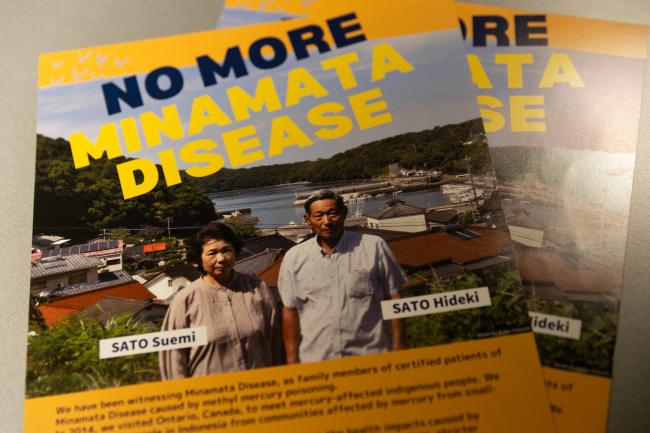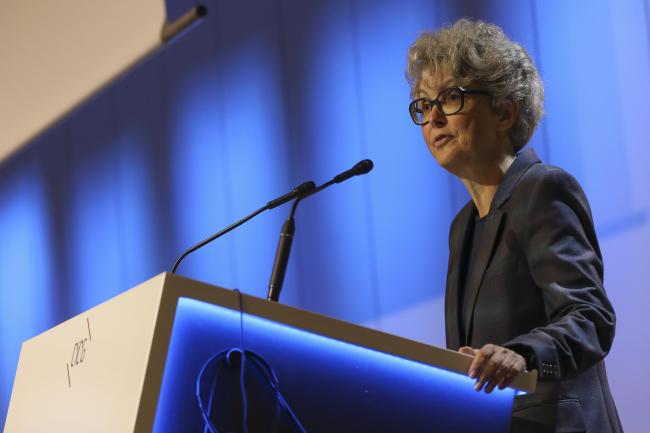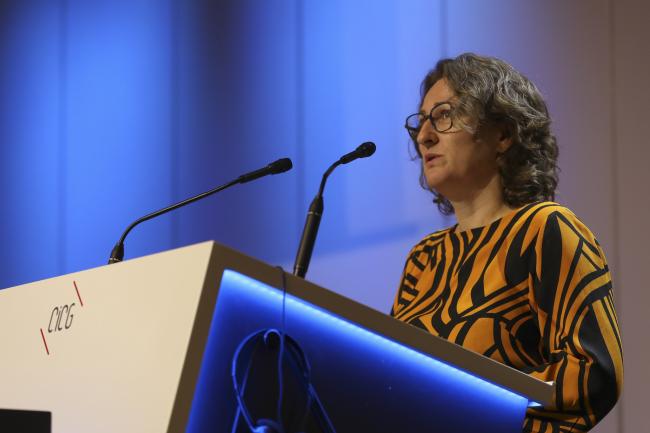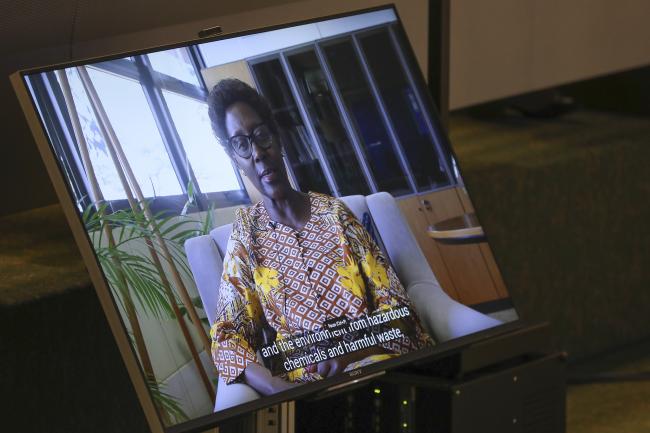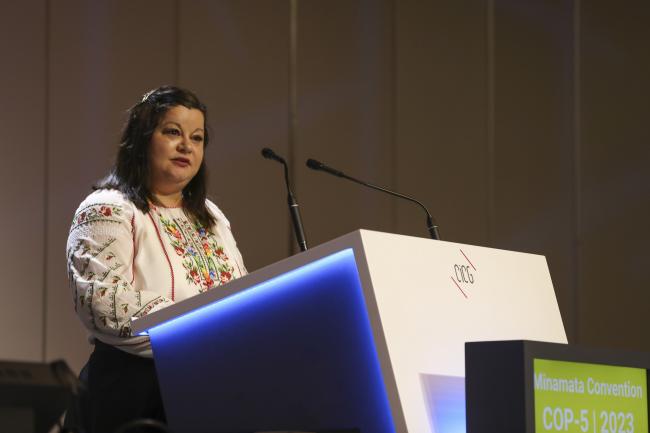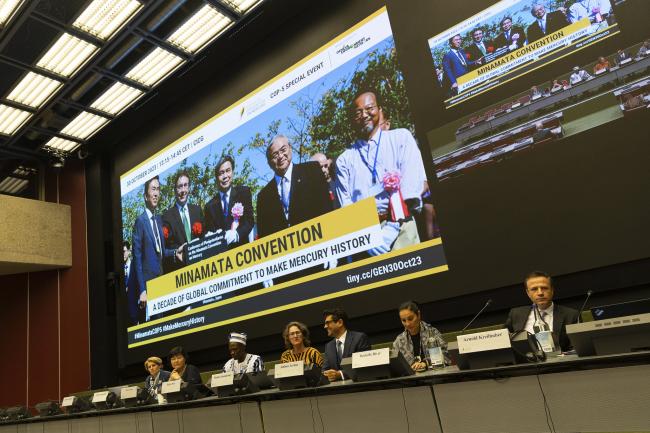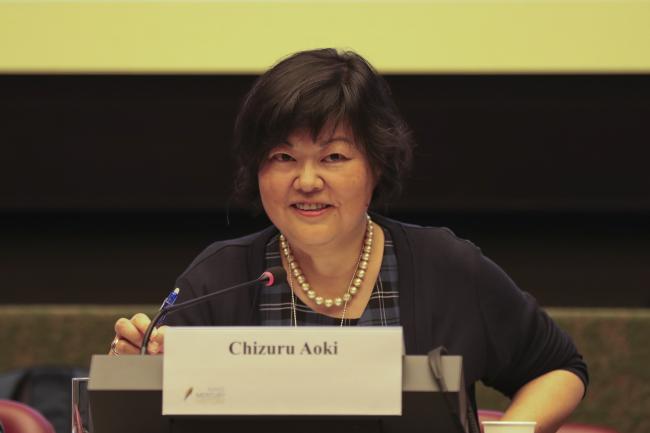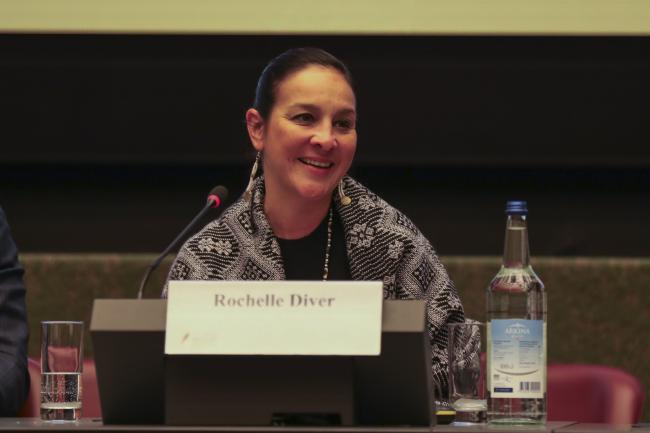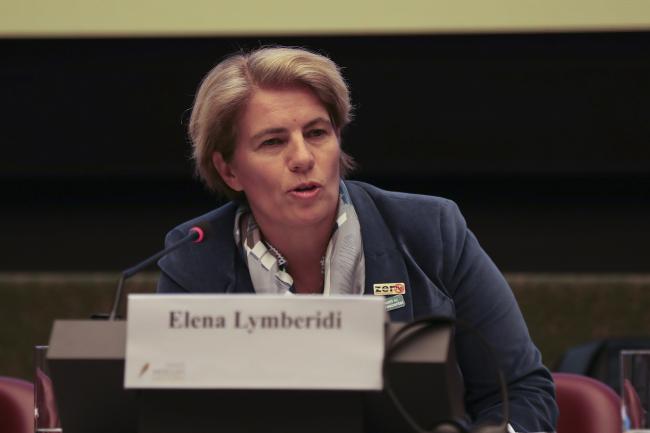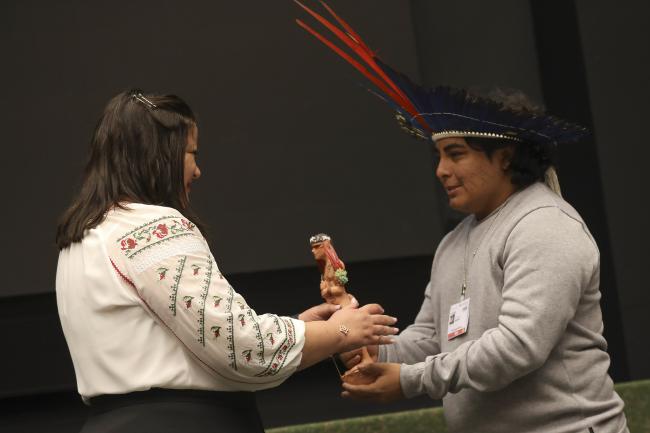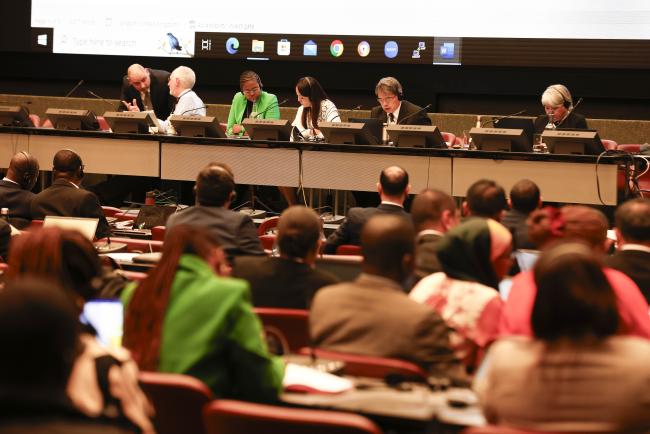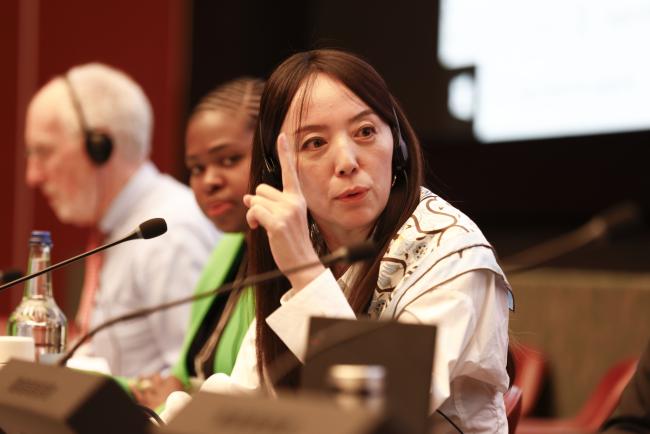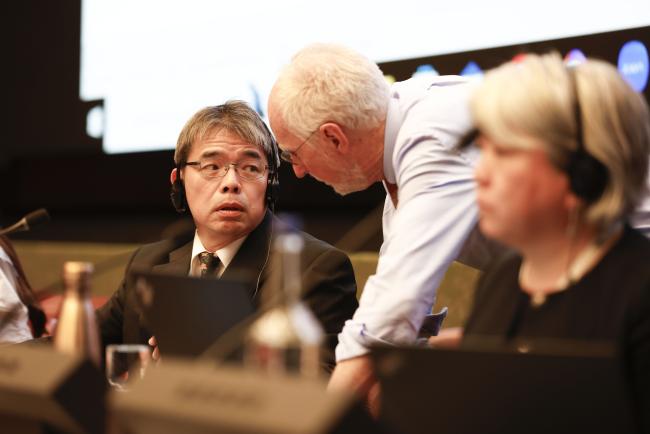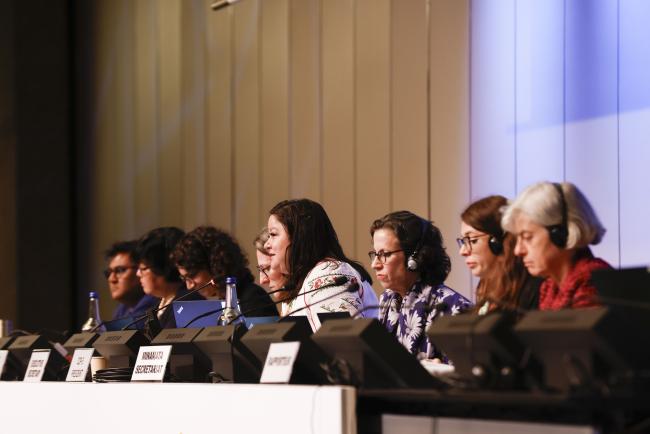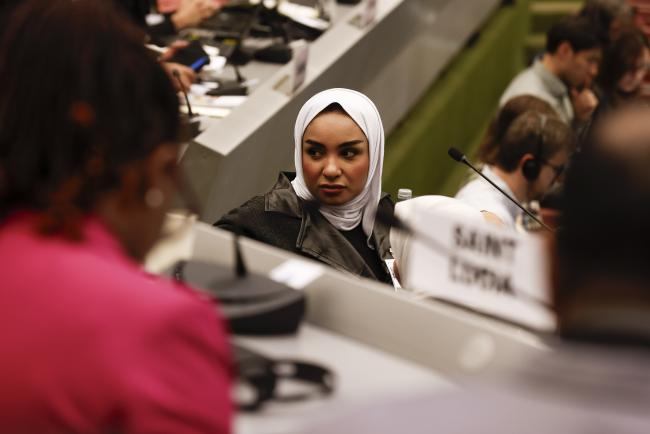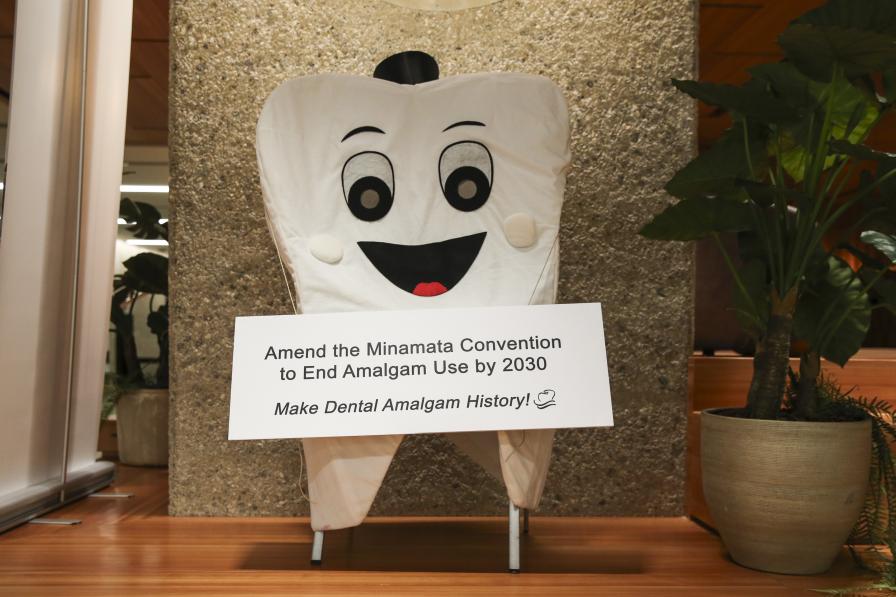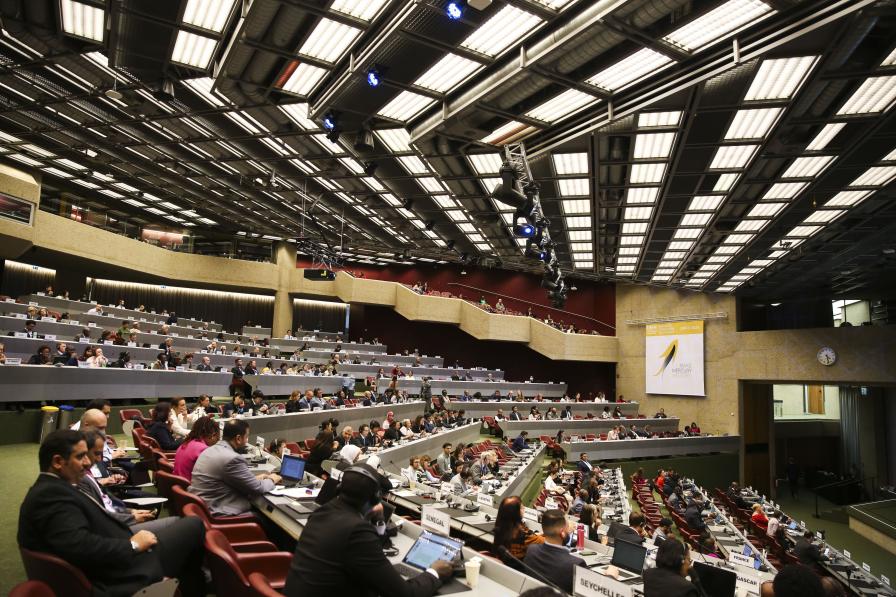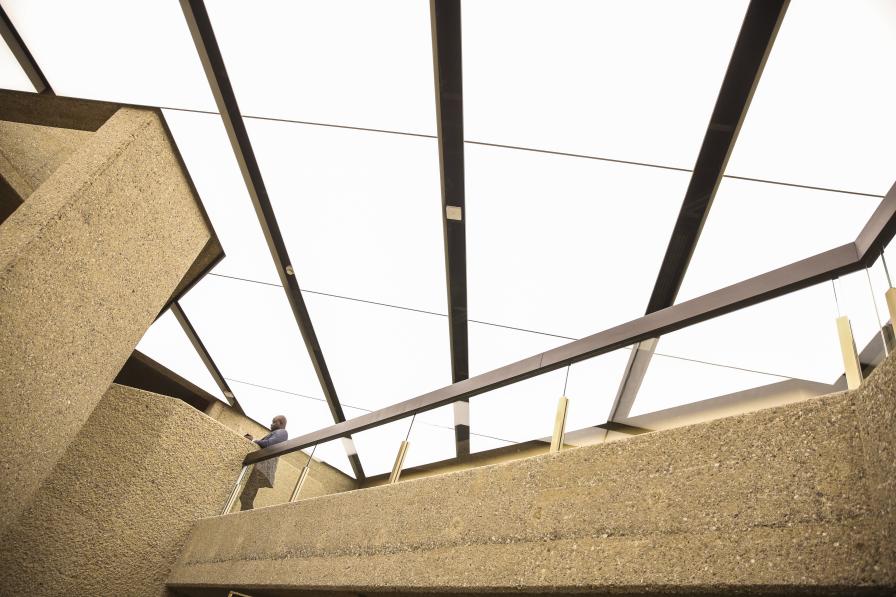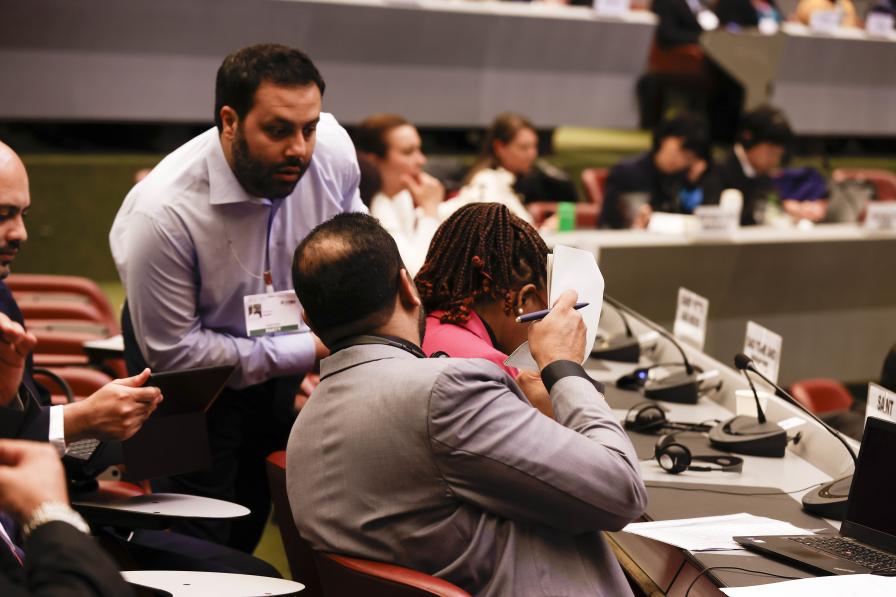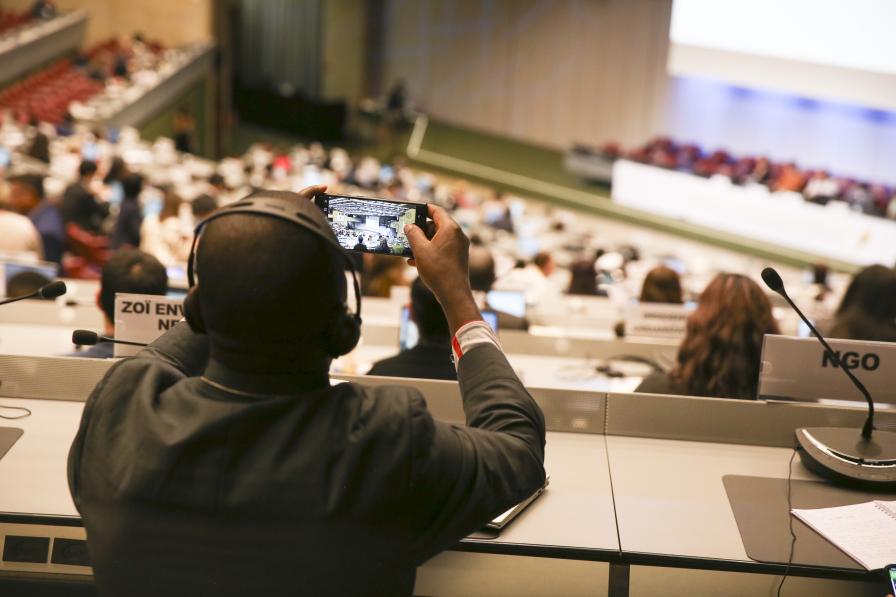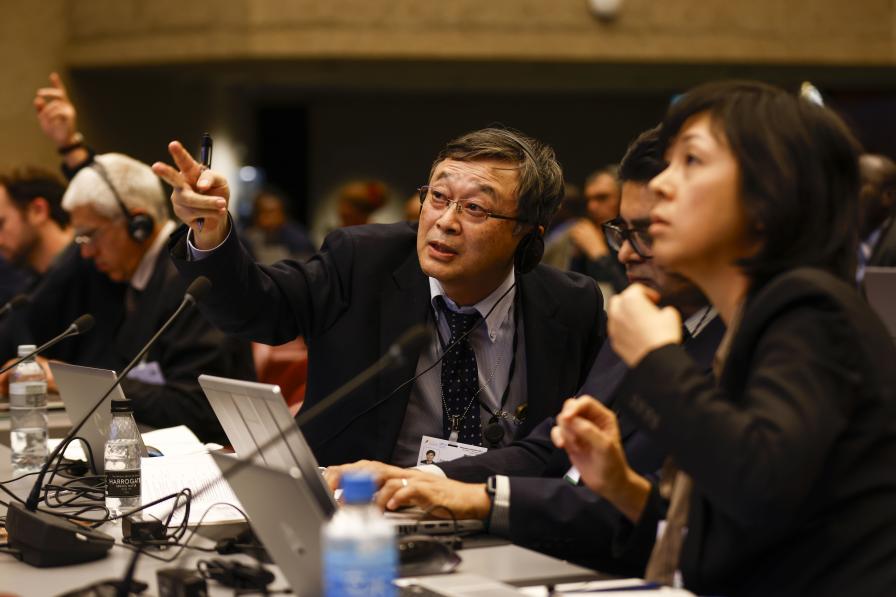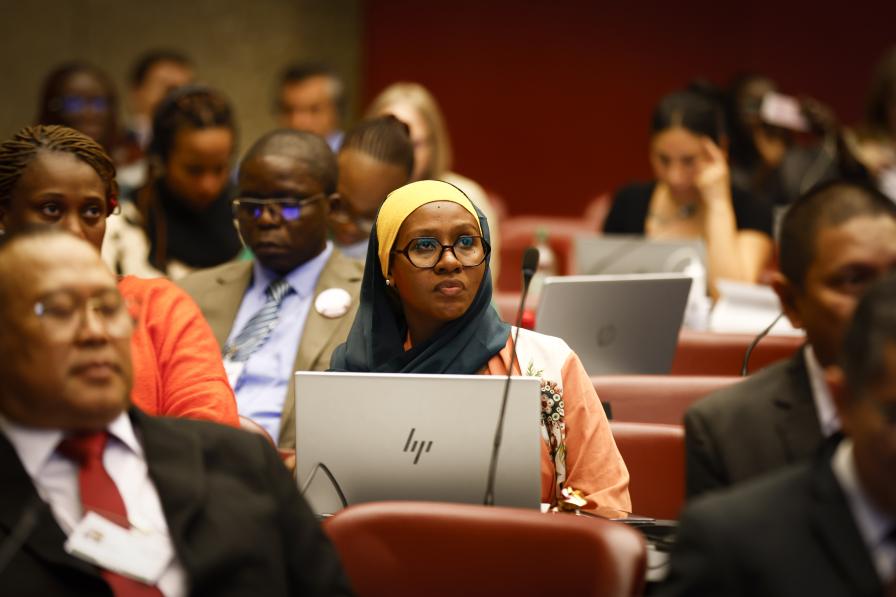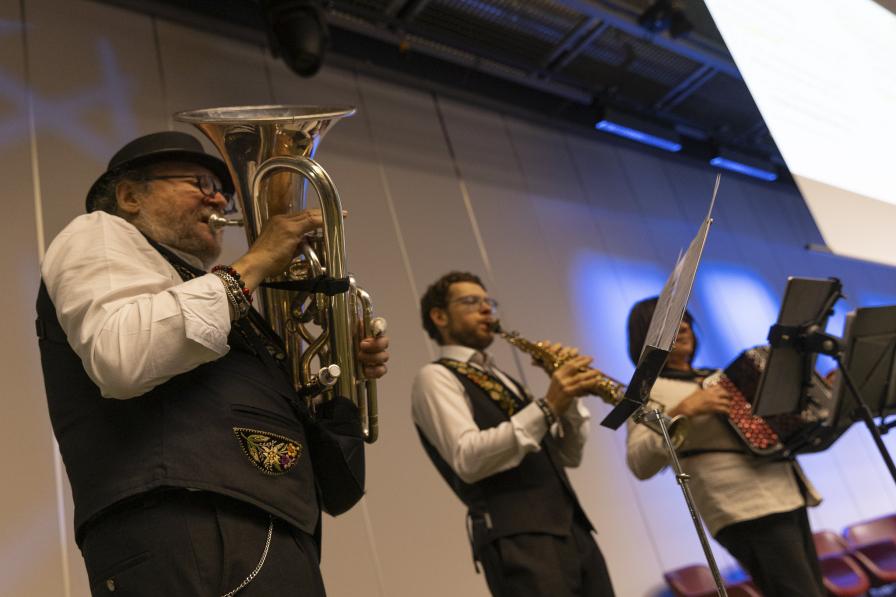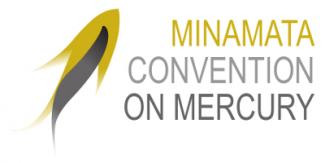Delegates celebrated the 10th anniversary of the adoption of the Minamata Convention and considered what decisions by the Fifth Conference of the Parties (COP-5) can take the agreement successfully into its second decade. During the morning plenary they called for amending the annexes on product and process phaseouts, finalizing the effectiveness evaluation, improving implementation of national action plans on artisanal and small-scale gold mining (ASGM), and adopting thresholds on mercury-containing waste, guidance on releases, and a gender action plan.
In her opening statement, Katrin Schneeberger, Director, Federal Office for the Environment, Switzerland, urged delegates to “deepen and expand” the Convention’s work.
Want to dig deeper into today's talks? Read the full Earth Negotiations Bulletin daily report.
Monika Stankiewicz, Executive Secretary, Minamata Convention, called for greater collaboration, trust building, recognition of the linkages between mercury and the climate and biodiversity conventions, and drawing on the knowledge of those most vulnerable to mercury exposure.
A lunchtime event was held to commemorate a decade of global commitment to make mercury history, in which participants recalled major milestones on the road to the Minamata Convention, including the voices of stakeholders who contributed to the historic achievement, from Minamata victims to artisanal gold miners.
Regarding possible amendments to Annexes A (phaseout of products) and B (phaseout of processes), many parties in plenary indicated their support for the African Group proposals to amend both annexes. In the contact group on annex amendments, co-chaired by Lesotho and Japan, which met in the afternoon, delegates debated but did not finalize phaseout dates for new proposals in Annex A, although they came close to consensus on certain button batteries, and switches and relays. The group also added two new Annex A entries for certain types of compact fluorescent lamps.
In the afternoon, delegates discussed the Convention’s financial resources and mechanism, noting that the Global Environment Facility (GEF) has increased its funding for the Minamata Convention by more than 30% in its eighth replenishment, and but that there are insufficient funds currently for the Specific International Programme to Support Capacity Building and Technical Assistance (SIP) to offer a fourth round of funding to parties. Many parties called for further funds to support critical efforts by developing countries to implement the Convention.
Delegates opened deliberations on ASGM, which were set to continue into Tuesday.
In the evening, the Swiss Government hosted a special welcome ceremony for all delegates to relax and take a break, before many headed back into the contact group on amendments to Annexes A and B.
To receive free coverage of global environmental events delivered to your inbox, subscribe to the ENB Update newsletter.
Except where otherwise noted, all photos are ENB photos and free to use with attribution. For the 5th Meeting of the Conference of the Parties to the Minamata Convention on Mercury, please use: Photo by IISD/ENB | Natalia Mroz.

